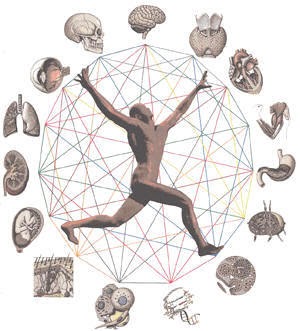Lab at LSU | Teaching/Courses

Vertebrate Physiology BIOL 4160
This course explores how the body works. This includes understanding how the bio-molecules, cells, tissues, organs, organ systems, and whole organisms carry out and coordinate the chemical and physical functions that exist in a living system and allow it to survive. It surveys the structure and function of the various components and systems of the human body, and how they work both separately and collectively to maintain homeostasis (stable chemical and physical conditions needed for proper function). Students gain an in-depth understanding of the chemical/biochemical, physical, and biological principles that serve to maintain homeostatic function of the major systems of the human body, including the nervous, muscular, cardiovascular, respiratory, urinary, and digestive systems. Throughout the semester, students will discover how some of the most fascinating physiological processes can be understood in terms of specialized cells, tissues, and organs, and how the many different systems work together to maintain proper body function under changing conditions. Students will also be exposed to the clinical relevance of physiology through examples of current techniques and technologies used to examine both healthy and disease states, as well as how studies in non-human systems have advanced our understanding of critical physiological processes.
“No one, unless he is grossly ignorant of what science has done for mankind, can entertain any doubt of the incalculable benefits which will hereafter be derived from physiology.” ~ Charles Darwin



Neural Mechanisms of Animal Behavior BIOL 4800
This course explores the neural basis of natural animal behaviors in a comparative and evolutionary context, using examples from invertebrate and vertebrate systems. Topics will include sensory processing and communication, control and coordination of movement, mechanisms of learning and memory, behavioral plasticity, and mechanisms of behaviors related to reproduction, aggression, orientation and navigation, and foraging. Students will gain an in-depth understanding of the neural and molecular mechanisms that drive natural behaviors, and how variations in the environment can change the expression of behaviors. Through the semester, students will discover how some of the most fascinating behavioral adaptations can be understood in terms of specialized neural circuits. Students will also be exposed to current techniques used to address neuroethological questions, from behavioral to genetic approaches, and gain experience in critical evaluation of experiments through readings of the primary literature.
“I am coming more and more to the conviction that the rudiments of every human behavioral mechanism will be found far down the evolutionary scale and also represented even in primitive activities of the nervous system." ~ Karl Lashley, 1951
"For many problems there is an animal on which it can be most conveniently studied." ~ August Krogh